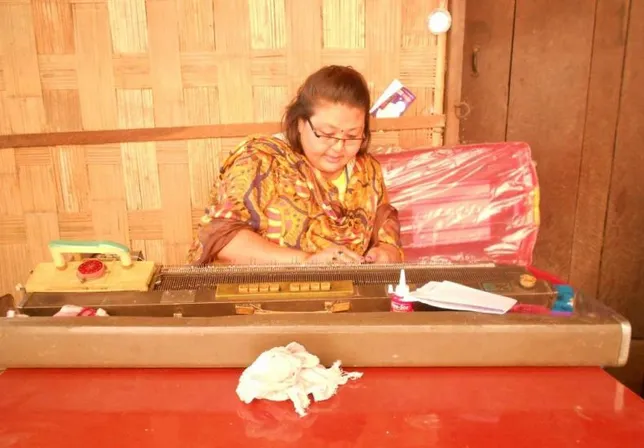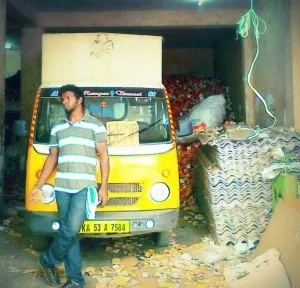Rang De is helping the ones who the banks usually say no to
Takhellambam Minarani Devi, a widow with four children, is a lady known for knitted winter wear in Wangkhei Angom Leikai (a place in Imphal, Manipur). The sole bread winner of the family, she wanted to give her children a better life and education. To buy in bulk to avail discounts and scale her business, she needed a loan.

Another story is of 28 year old Krishna Ayyakanu who started picking waste when he was 8. He would pick, segregate, sell, and use the money to feed his family. Two years back, he was approached by Hasiru Dala, a waste picker’s association who provided him with waste management training, an identity card duly authorized by BBMP (Bruhat Bengaluru Mahanagara Palike), jacket, and safety equipment such as gloves and boots. He knew that he could turn waste segregation into a business but the challenge was money.

Minarani and Krishna did get the help they needed. Minarani was helped by SEVA and Krishna by Hasiru Dala, to obtain a loan from Rang De for Rs. 8,000 and Rs 40,000 respectively. Minarani could get all the raw material she needed to scale her business and Krishna owns and runs a ‘Dry Waste Collection Centre near Domlur in Bangalore.
Then to Now
RangDe.org is an internet-based peer-to-peer micro-lending website, empowering individuals to lend to a rural entrepreneur across the country. Rang De has come a long way from when we covered them in 2010. According to Smita Ram, Co-founder and Chief Impact Officer at Rang De, the organisation has progressed on multiple fronts. She says, “We had disbursed less than 1 crore as low cost loans in 2010. We have now raised and disbursed Rs. 40 crores as low cost loans, impacted over 38,000 low income households across India. We have a strong network of impact partners on the ground – currently 25 active partners in 16 states.”
Rang De has also diversified into different sectors such as handloom weaving, handicrafts, waste segregation, loans for people with disabilities, and education. Smita adds that the diversification has a sole aim of reaching out to underserved communities and individuals, who have never had access to credit from a financial institution. Smita touches upon another aspect of how the last five years have shaped up the team at Rang De, “Over the years, we have developed the expertise to customise our intervention to meet the needs of the community. Our intervention with a tribal community in Jharkhand is very different from our intervention with a handloom weaving community in Karnataka.”
What’s different?

With more players in the space, we ask Smita how is Rang De different? “Our borrowers pay interests ranging between 4.5%- 10% flat p.a. for their collateral free loans.” In terms of impact, Rang De claims that 100% of the funds are used to support their borrowers and over 50% of their borrowers are first time. With the aim to be absolutely transparent, all the documents are published online.
There’s also been a revision in the strategy. Smita says, “In the agricultural sectors of emerging economies such as India, capital is king. It dictates power and ownership and therefore providers of capital capture the lion’s share of surpluses created in agribusiness value chains. Now a new investment model which employs Participative Capital is challenging the status quo. Hence, we revised our strategy to partner with Producer Companies, Cooperatives, SHGs and help them raise the working capital to amplify the impact.”
Funding

Rang De has recently extended its support from the Tata Trusts for next four year, i.e. till 2019. Tata Trusts are amongst India’s oldest, non-sectarian philanthropic organisations that work in several areas of community development. They have been actively engaging through grants in the areas of Natural Resources Management, Rural Livelihoods, Urban Livelihoods & Poverty, Education, Enhancing Civil Society and Governance, Health and Media Arts, Crafts and Culture.
The aim of this initiative is to offer affordable micro-credit solutions to nearly a quarter of a million families, over the next five years. These families will be given access to better livelihoods, education, and health and sanitation facilities. According to the understanding between Tata Trusts and Rang De, the latter will scale up the team and increase their crowd-funding network with an additional 12,000 social investors.
On a parting note, Ramakrishna NK, co-founder and CEO, Rang De, says, “We plan to do this by bringing over 100 corporates and 1.5 lakh new socially conscious Indians to play the role of social investors over the next five years.”







